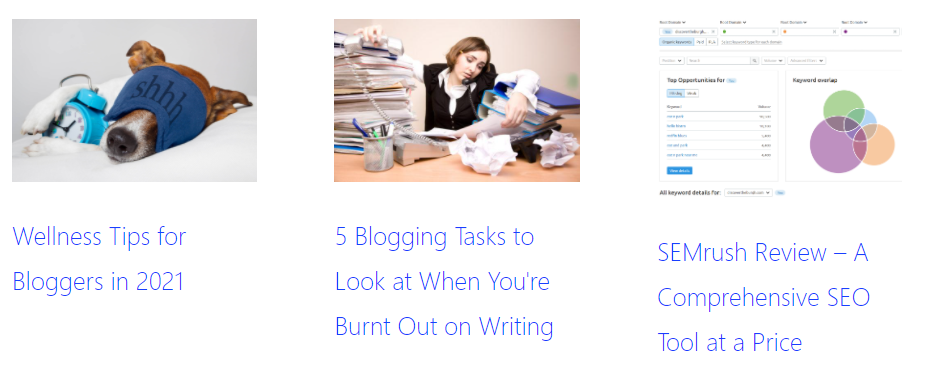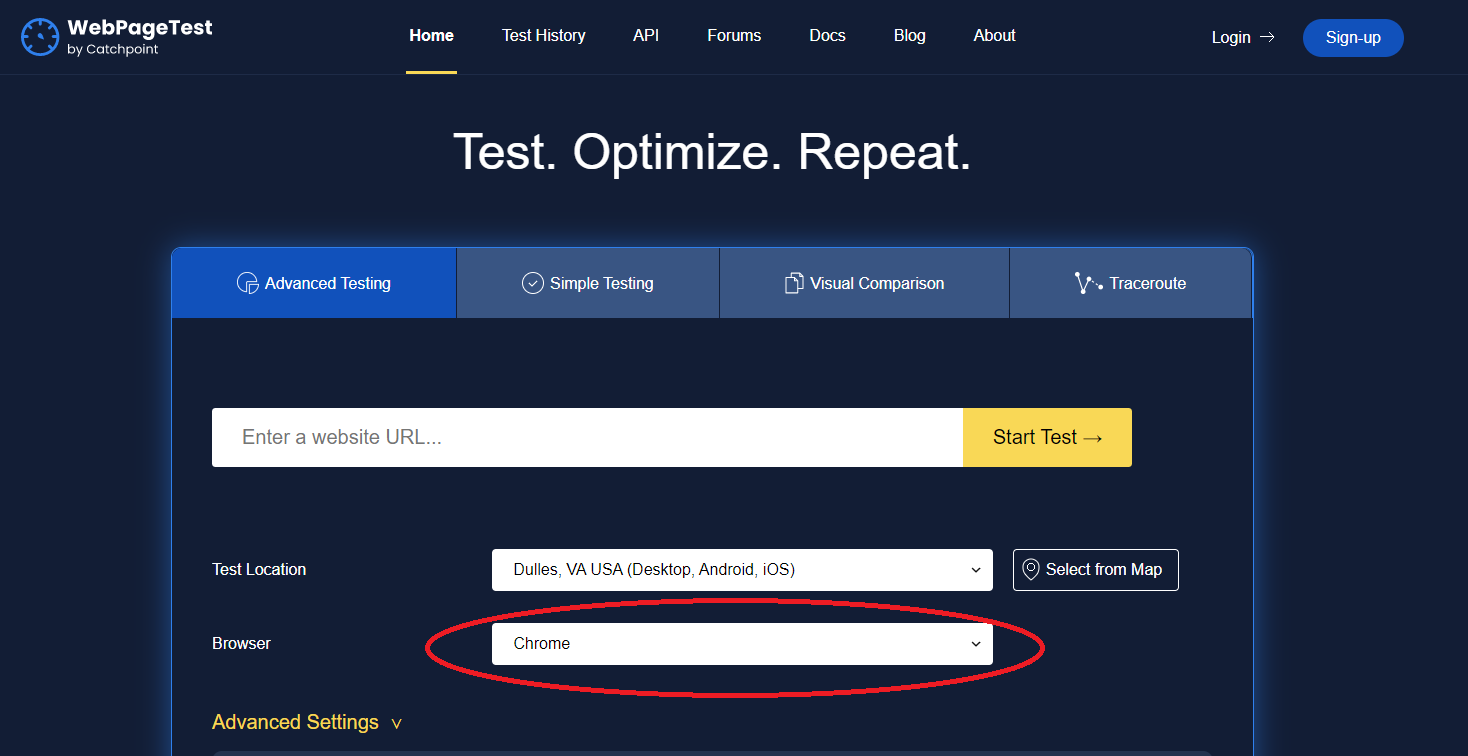Published by Jeremy. Last Updated on August 6, 2023.
Disclaimer: This Week in Blogging uses demographic data, email opt-ins, and affiliate links to operate this site. Please review our Terms and Conditions and Privacy Policy.
For the last few months, I felt like I've been spinning my wheels on growing my blogs. My sites are doing well, but I'm not seeing as much growth as I would like (especially for my new niche sites).
It wasn't until I saw a comment in our Facebook group from our friend Mariellen (of the amazing travel blog Breathedreamgo) about the differences between strategy and tactic that it made me really stop to think about what I was doing with my brands. In fact, I thought of this one so much that it helped inspire me to change how I approach producing content moving forward.
So in this one, I thought I'd share a bit more about defining a blogging strategy and how my new angle helps keep me in line with my site goals.
Blogging Strategy vs Goals vs Actions
When it comes to blogging, almost everyone has similar goals for the long term. You may have one of these, or you may have all of them, but the general topics are almost always the same:
- I want to rank first page in Google for [terms].
- I want to make a full-time income from my blog.
- I want to be considered an expert in [niche].
- I want to make an income selling [product] as an affiliate.
- I want to double my traffic in [X amount of time].
This is where I was with my current blogging strategy, as I looked at my new niche sites with the goals of “I want to get them to Mediavine levels ASAP” and my established sites with goals of “I want to double their traffic in a year”.
It is all well and good to have goals like these, but you simply cannot say “I want [a thing]” and then continue with your daily business. The steps you take to make those goals a reality are, in fact, more important than the goal itself. This is where having a strategy comes into play.
The strategy I used to reach said goal was simply publishing two to three posts per week (per site) and hoping for the best. I know my general model for content creation works from a grand perspective, but when I realized that this strategy was not getting me to my goal at an appreciable speed, I had to stop and take an inventory of what I could be doing better.
What I realized I was lacking was a clearly defined list of actions that would define my strategy and help me reach my business goals. Yes, you could argue that “write two to three posts per week” is an action, but because this one was not clearly defined, it was more like a broad strategy. Do these posts have traffic potential? How much? What are the odds I can rank for them? Honestly, for most of the posts, I simply cannot answer those questions with any degree of certainty- and that was the problem.
Knowing things will work, eventually at least, is one thing. Being much more focused with all the details aligned is another altogether. This is the pitfall that many, many bloggers fall into.
So let's take a quick second to clean up the three terms mentioned above and define them a bit clearer for this discussion:
- A goal is your intended outcome of work. All the items listed in the bullet points above are great examples of goals. Goals are never guaranteed but are what we hope becomes reality.
- A strategy is your brand's broad umbrella plan to realize your goals. For example, producing more content for traffic, advertising on social media to build a fanbase, etc. We keep these somewhat broad on purpose.
- Finally, actions are the specific steps you take within your strategy to meet your goals. For example, writing [X] articles with [Y] targeted keywords of [Z] search volumes, optimizing your ad targeting preferences, testing a new affiliate placement idea, etc. These are the precise steps used within a broad strategy to achieve the overall goal.
Now, if we were to revisit the problems I was facing with my own blogs, you can see the problem was not so much in the strategy I had defined, but in the actions I chose to take to get there. They were, in all honesty, simply not defined.
On my wine blog, for example, I had the goal of getting into Mediavine this calendar year. My strategy was to write as much as possible, but I was also spending most of my time writing granular wine reviews of brands that aren't widely distributed. You know what that means- little search traffic and sporadic social clicks at best. This means slower growth and a delay in reaching my goals.
On my Pittsburgh blog, I had the goal of doubling my traffic in a calendar year. My strategy was also to write as much as possible, but I was also writing reviews of individual restaurants and obscure attractions that, wouldn't you know it, also have little search traffic (we've already hit most of the major ones by now). While some of these do quite well on social thanks to our large and engaged community, I will admit that they did not do much to help improve the chances of meeting my goals as defined above.
- The actions for these sound quite similar, but in practice, they can be very different. A new website publishing a new article with the potential of 100 views per month can be huge for long-term traffic. An established site already pushing 300,000 page views per month will not grow as much, proportionally at least, with that same article.
- But you can also see how these may also satisfy another goal that is tangential to my main goal of making money. Having hundreds of wine reviews on our wine blog helps build credibility online. Having everything in Pittsburgh featured on our local blog does the same. This is an intangible reputation builder that, while necessary in my opinion, also wasn't helping me meet the defined goal I had set out for myself on the income front.
So, what did I do?
I shifted my content generation strategy on both of those sites to produce more content that will match my intended goals. This means writing posts with larger keyword volumes on both sites, either in the form of roundups, general guides, or, in the case of wine blog, targeting some bottles that have much larger name recognition over others, to name a few.
Traffic started increasing almost immediately.
My first post on my local blog with this way of thinking got over 1,000 page views on the first day on social, and my broader articles on the wine blog started getting search traffic shortly thereafter, too. Not nearly as much for the wine blog, I'll admit, but starting an upward trajectory all the same. I now try to write a minimum of one post per week for each of these sites with this style of goal in mind while keeping the remaining to be within our site's original structure (i.e. do or drink everything- further improving our recognized expertise within the niches).
Ultimately, this rather long-winded explanation is necessary because when it comes to defining your blogging strategy, you need to periodically take a minute to evaluate where you are, where you want to be, and the steps you want to take to try and get there.
Defining Your Blogging Strategy in Three Simple Steps
So to finish this one, I challenge you to take a bit of time and put a plan in place using the following three steps:
- Step 1: Define Your Goals – Yes, get ahead of yourself here. Dream small or dream big. Define what you want your blog to achieve and when you want it.
- Throw in some numbers here to set a more tangible benchmark. 100% traffic growth in 12 months. 10% traffic growth in four weeks. $1,000/month income via ads in six months.
- Intangible goals of “be viewed as an expert” are great ones to have, but here we really want to define measurable things if at all possible. Quantifiable benchmarks let you analyze data to see how your goals are developing.
- Step 2: Define Your Strategy – Now, take a minute to think of what broad work you need to do within your business to achieve these goals. Like the above step, think generally.
- If you want to increase your traffic, are you going to write more content, optimize existing content, or work on social media?
- If you want to increase affiliate sales, are you going to test dedicated reviews, plugs in existing posts, or broad end-of-content placements?
- If you want to be viewed as an expert within your niche, what does that mean and who do you want to recognize you as an expert? (You can see how not having defined numbers makes these intangibles a bit tricky.)
- Step 3: Define Your Actions – This final step is key and was what I lacked. What actions do you have to take to from strategy to goal? In many cases, this is likely built off of all of the things you recognize that don't work as much as coming up with a new idea itself.
- The key here is to be specific. Simply “write more posts” to generate traffic isn't defined enough. Consider that a strategy. “Write one post a week with a minimum of [X] search volume and maximum of [Y] difficulty score” is.
- “Review an affiliate product” is not specific enough. “Review one affiliate product a week, test [X] footer placements, and add [Y] links in 3rd parties (e.g. newsletter)” is.
- Increasing followers on social media is not specific enough. Testing $1/day advertising on social networks to build brand awareness is.
There can be an honorary Step 4 here as well, and that is to set a timeline for evaluating results. This is where quantifiable terms can be looked at in closer detail and you can refine your list of actions for further improvement.
If you defined a goal of “10% traffic growth in four weeks,” you're now able to take a look and see how you did. If you only hit 5%, you can look at what gave you the growth and pivot accordingly. Or, if you hit 20% growth, you can dive into things with a bit more detail to try and repeat the results in future content. You can see how this would be a lot harder if you simply said “increase traffic” without any further definition.
Overall, one of the biggest reasons we as bloggers find ourselves in a rut is because we're doing the same thing over and over again and expecting different results (it is called insanity, by the way). So depending on what timeline you're looking at for your goals, be sure to stop and evaluate periodically along the way as you may find you learned new best practices to incorporate!
Ultimately, thinking in these three steps really helped me define my actions to connect my strategy to my goals. It stopped being “write content to get more revenue via traffic” and “write at least one post per week with minimum [X] PV/month traffic potential via either search or social”. This then let me look at what I write and tailor the topics accordingly, which I was absolutely not doing in the past.
How do you come up with your blogging strategy? Comment below to share!
Join This Week in Blogging Today
Join This Week in Blogging to receive our newsletter with blogging news, expert tips and advice, product reviews, giveaways, and more. New editions each Tuesday!
Can't wait til Tuesday? Check out our Latest Edition here!
Upgrade Your Blog to Improve Performance
Check out more of our favorite blogging products and services we use to run our sites at the previous link!
How to Build a Better Blog
Looking for advice on how to improve your blog? We've got a number of articles around site optimization, SEO, and more that you may find valuable. Check out some of the following!











